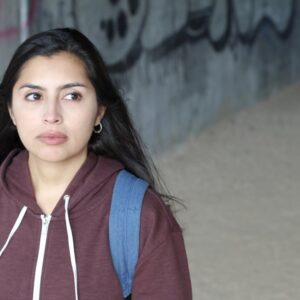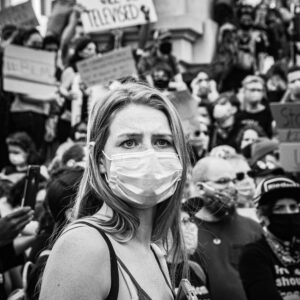In 2019, Connecticut became the first state in the U.S. to legislate the establishment of a LGBTQ+ Health and Human Services Network. Co-sponsored by Rep. Jeff Currey and Rep. Raghib Allie-Brennan, this historic bill called for representatives from non-profit agencies as well as government offices to regularly meet in order to better serve LGBTQ+ residents of the state. The Network collaborates with lawmakers to make recommendations to the legislative, executive, and judicial branches of government regarding the delivery of health and human services to lesbian, gay, bisexual, transgender and queer individuals. Furthermore, the bill allocated $250,000 yearly to support needs assessments and subsequent data-informed services for the LGBTQ+ population of Connecticut. The Network’s inauguration therefore stands as a beacon of hope to young people who may feel isolated in the state; Connecticut is committed, both legislatively and fiscally, to broadening LGBTQ+ inclusion efforts.
The Network began to meet in 2020, electing Patrick Dunn (Executive Director of the New Haven Pride Center) as Chair. Comprised of almost a dozen leaders from the LGBTQ+ nonprofit sector as well as numerous supporters from throughout the community, the Network tackled their first major project: analyzing the needs of the LGBTQ+ population in Connecticut. Through the Consultation Center at Yale and spearheaded by researcher Amy Griffin (Director of Health Evaluation Initiatives), the Network funded Connecticut’s first statewide LGBTQ+ needs assessment via a survey available in both English and Spanish. The survey sought to identify the unmet needs of members of the LGTBQ+ community through questions about access to services as well as experiences of discrimination. Despite barriers presented by the pandemic, nearly 3,000 individuals completed the survey, resulting in a full report that can be accessed via the New Haven Pride Center’s website.
The Network hosted a press conference in 2021 to release the survey’s findings. Respondents closely resembled the geographic, racial, and ethnic makeup of Connecticut, providing previously unavailable information about gender identity and sexual orientation in Connecticut. More than half of submissions to the survey detailed experiences related to some form of violence as a result of identity-based discrimination. Many responses described unpleasant interactions with healthcare providers, noting access to mental health services as a priority for the community. In addition, almost half of respondents who accessed housing services worried about affordability as well as finding resources friendly to LGBTQ+ individuals. Notably, the majority of respondents felt that while Connecticut may have a lot of work to do, they also acknowledged that the state is making visible strides to meet the needs of this population.
The existence of the Network serves as a groundbreaking step forward for a historically underserved community (in Connecticut and beyond). Importantly, LGBTQ+ individuals can no longer be forgotten by lawmakers both as a population with unique needs as well as a resource for the state itself. Money allocated to the Network will allow the skills and talents of the LGBTQ+ community to flourish, subsequently giving back to Connecticut at both the state and local levels. The Network hopes to develop itself as a fixture of advocacy in the state by building a website, further outlining bylaws, and working to expand its membership. In the future, the Network intends to provide grants in support of LGBTQ+ programming and education across the state.
The establishment of the LGBTQ+ Health and Human Services Network therefore uplifts the downtrodden, providing lifesaving support services while capitalizing upon the community’s inherent strengths.
William Ollayos (he/him/his) serves as a Policy Fellow with the General Assembly’s Commission on Women, Children, Seniors, Equity & Opportunity (CWCSEO). He works professionally with the Office of Residential Life at Wesleyan University.






